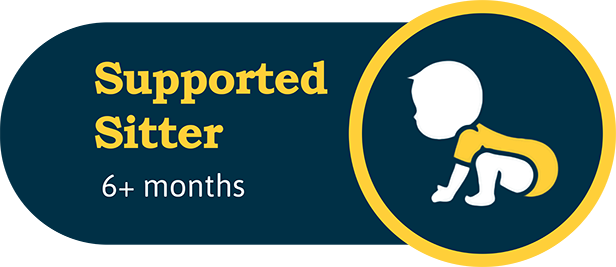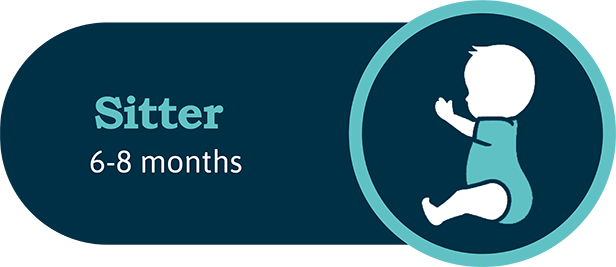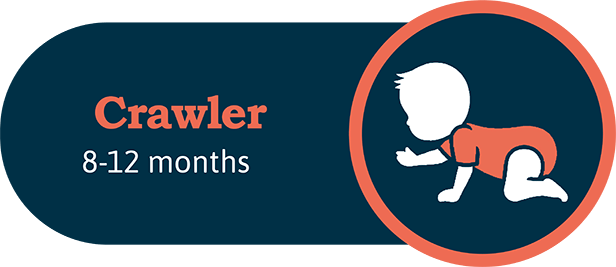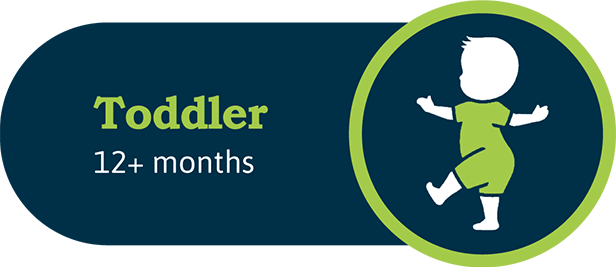Your Baby Developmental Milestones
Learn all the baby cues. Know when your little one is ready to explore more variety of food or feed on bigger bits of food, based on their milestones.

Baby ready for weaning? Look for these cues to know if your baby is ready!
Physical Skills
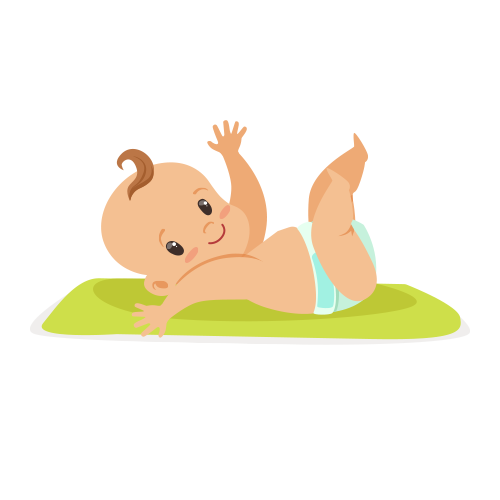
Starts to keep her head stable
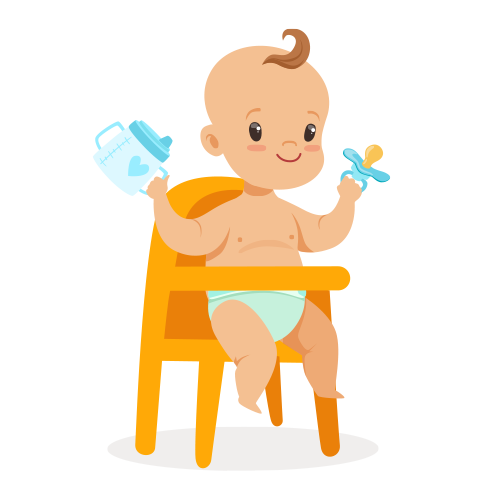
Sits up with support
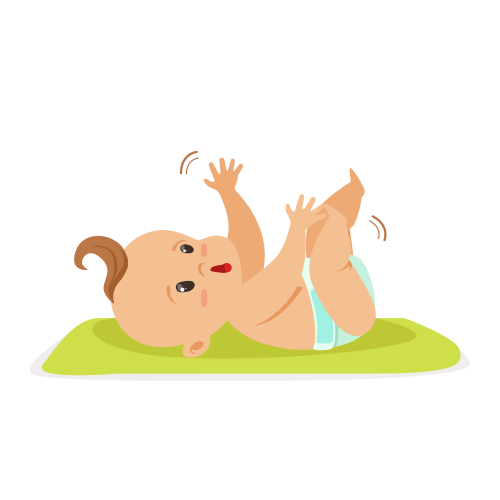
Still loses balance & rolls over

Grasps for things voluntarily
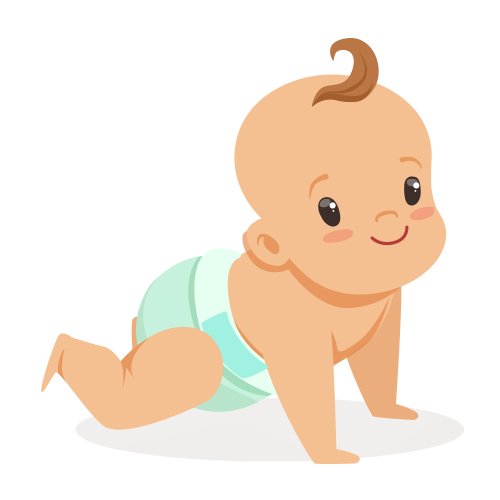
Pushes herself up with straight arms & can turn her head to look around while on tummy
Eating Skills
- Uses tongue to move food back to swallow
- Uses swallow reflex to swallow once food is in back of throat.
- Recognizes a spoon when it's time to eat.
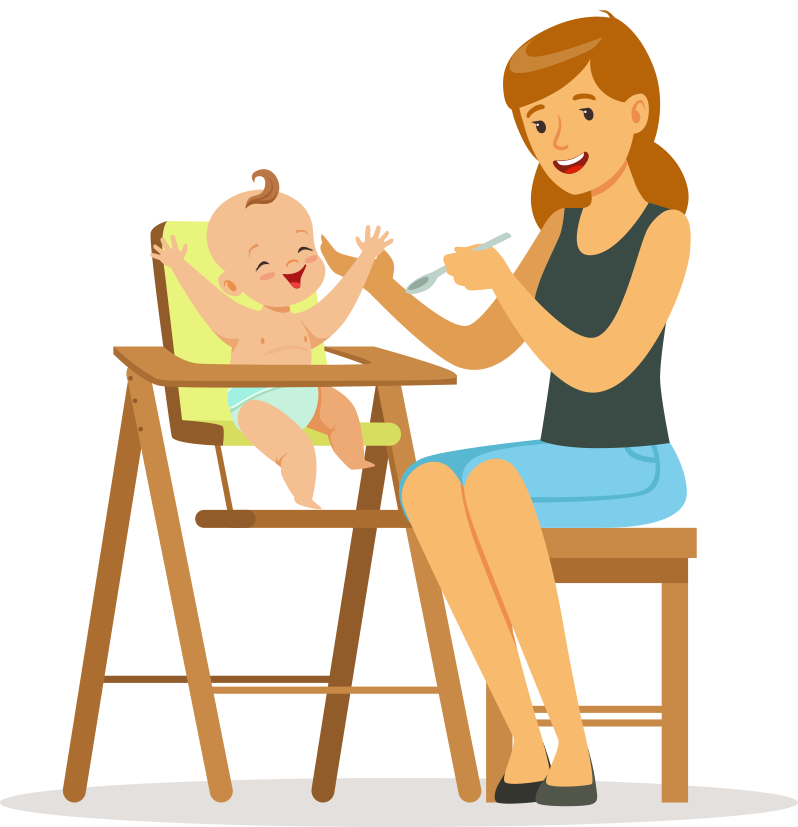
By the age of 6 months, your baby has usually at least doubled his or her birth weight and is becoming more active. Exclusive breastfeeding would no longer be enough for your baby to meet all the energy and nutrients needed. Hence, it is important to make sure that your baby is getting the energy and nutrients that he requires at this time to support his overall growth
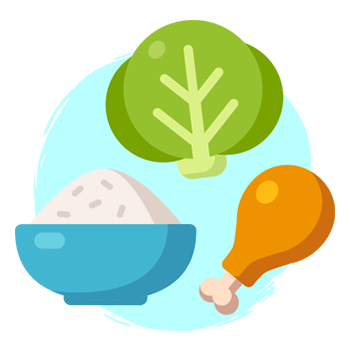
Iron Rich Foods
Ex: Iron-fortified rice cereal, animal source foods (chicken, meat, fish)

Your baby has the highest growth rate between 6 months to 2 years, and iron needs are higher than any other period of life!

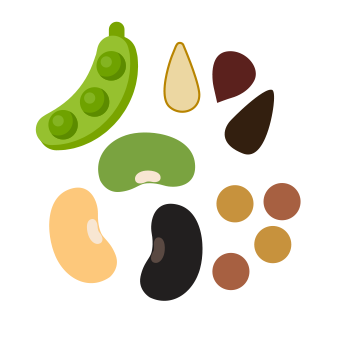
Pulses – Peas, beans, lentils
Good sources of protein and iron
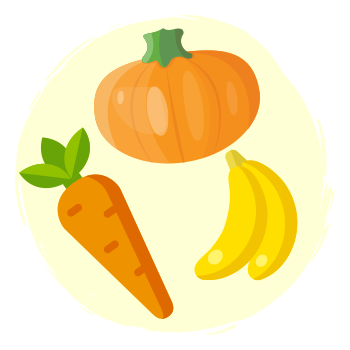
Fruits & Vegetables – Carrot, pumpkin, papaya, dark-green vegetables
Rich in Vitamin C to help with iron absorption
Begin by introducing one single ingredient food at a time, for example iron-fortified infant rice cereal.


Doing so allow parents to identify any allergic responses or food intolerances.
Offer a variety of food from different food groups in pureed texture.
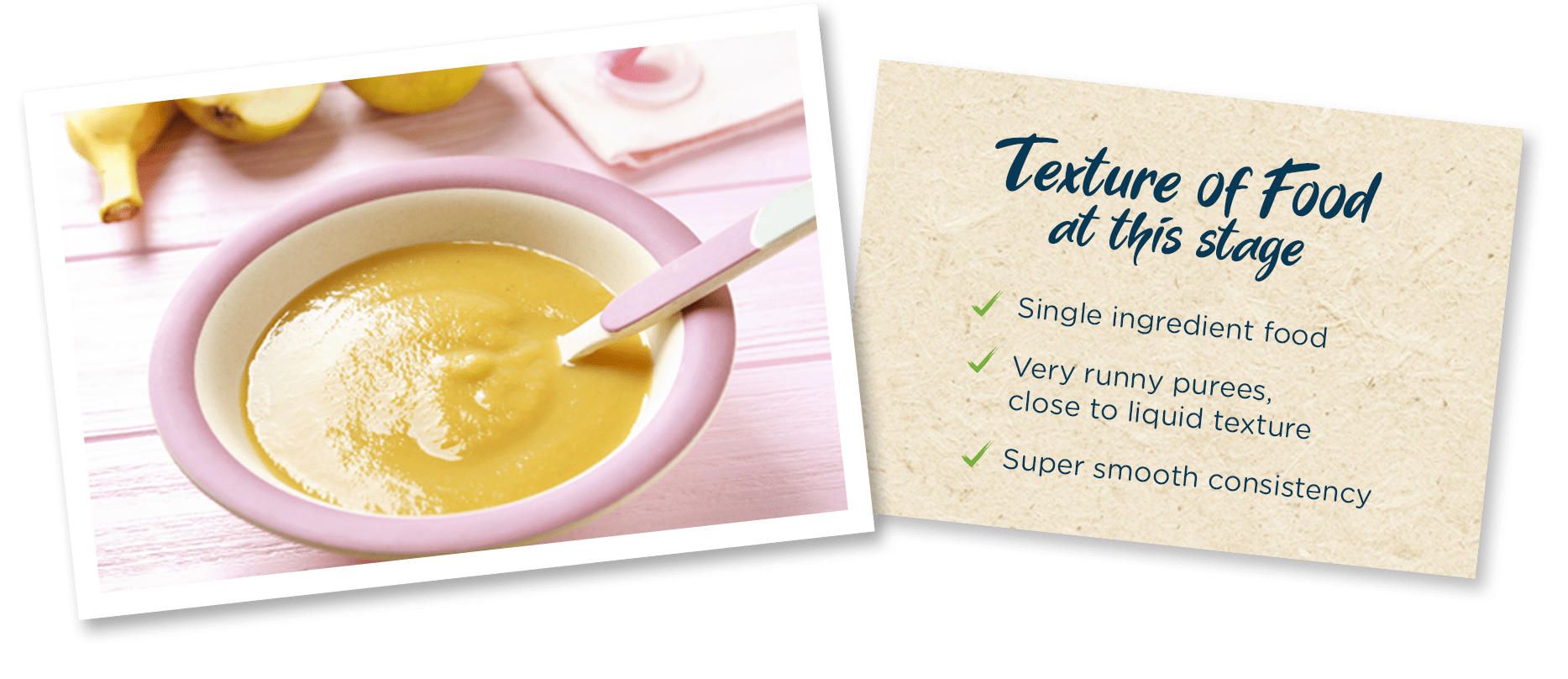
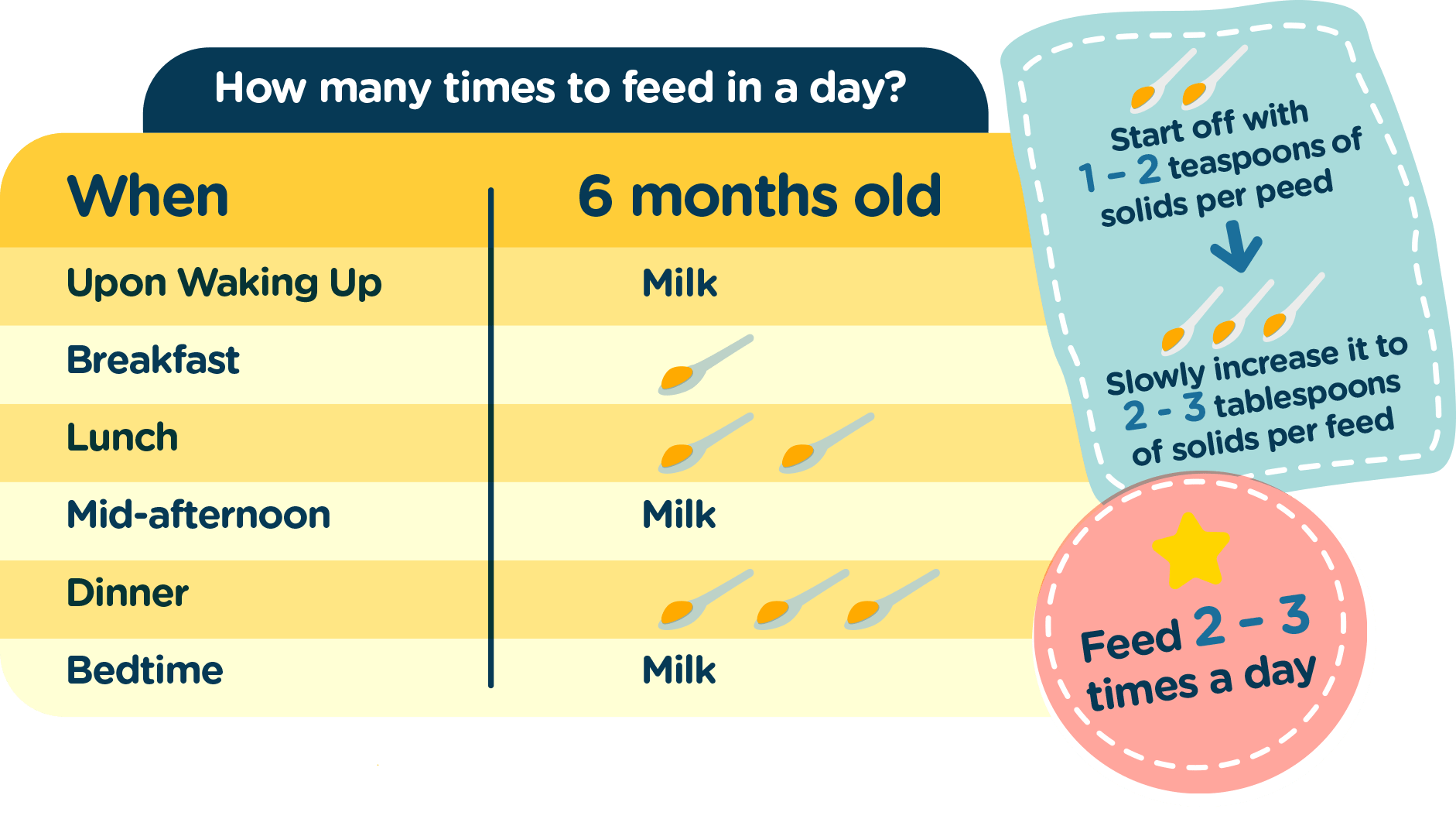

Watch for these cues to know if your baby is ready to explore more variety of food!
Physical Skills

Sits in a high chair without help

Squeezes objects, and doesn't just grasp them

Has more control over her hands
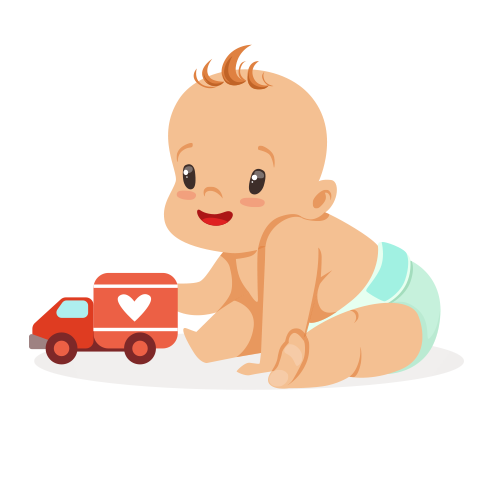
Uses fingers to drag things towards her
Eating Skills
- Uses upper lip to help clear food off spoon
- Begins chewing movements using up & down jaw "munching"
- Drinks from a cup, but may not hold it on her own
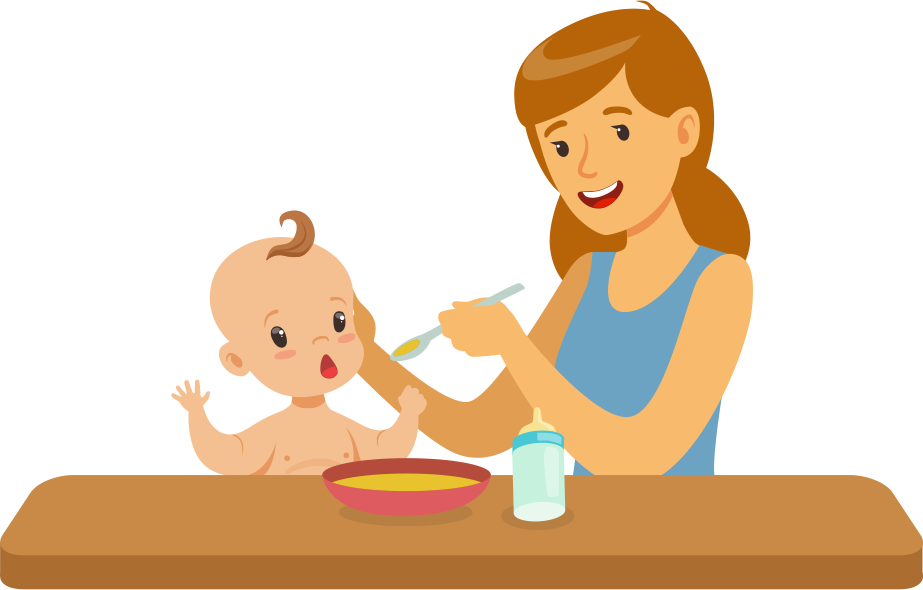
At this stage, your baby has probably had his first taste of solid food by now. Introduction of Infant cereals and pureed baby foods are helping to develop his eating skills. As your baby show more acceptance to new food being introduced to him, combination of ingredients can be introduced now to allow new flavours and textures to be discovered!
Add different foods! Different taste!


You can help your baby to learn to accept more flavours and provide a well-balanced diet by offering a variety of nourishing food


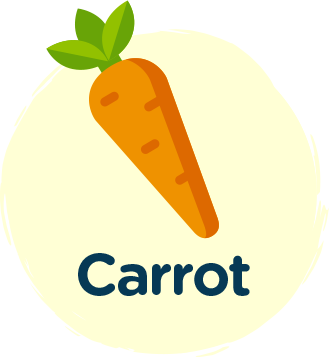

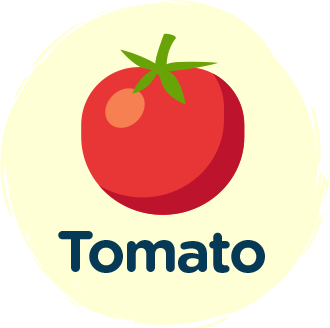

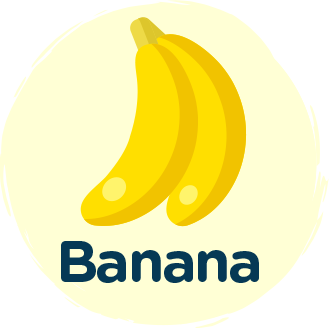

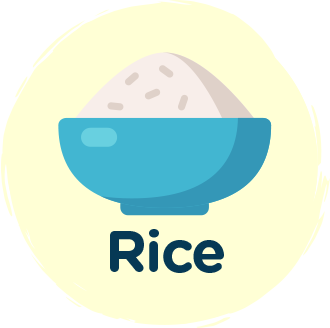

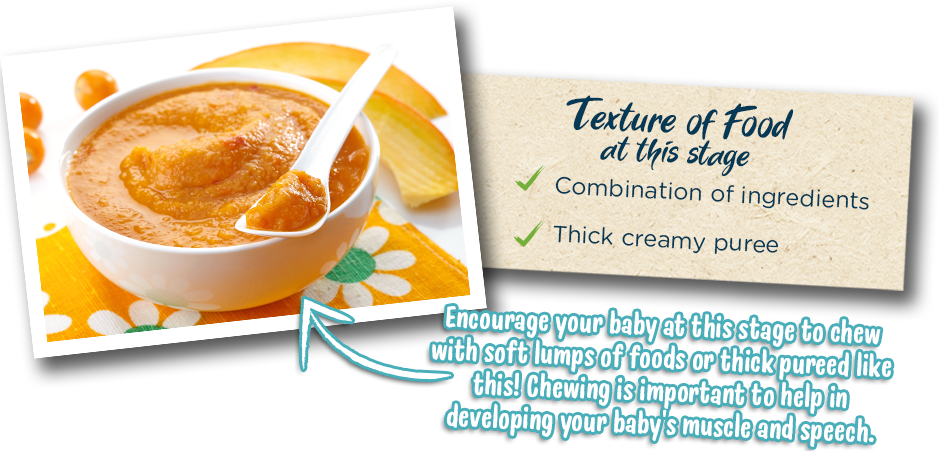

You baby may also begin her teething journey sometime at this point. Biscuit / Teethers rusk can also be given at this time to massage baby’s tender gums. This can also provide chewing practice and encourage your baby to feed themselves
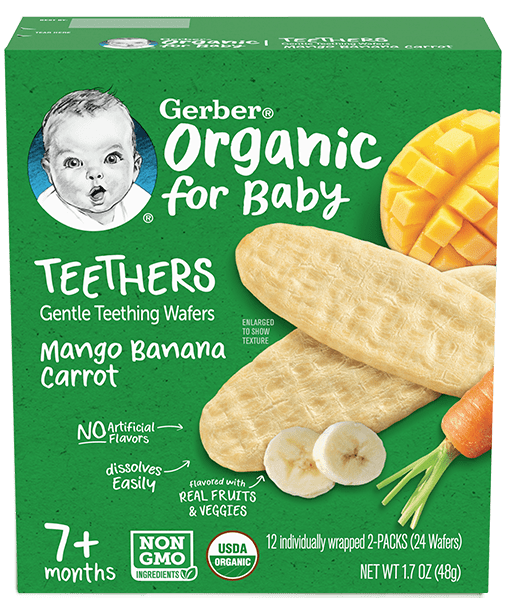

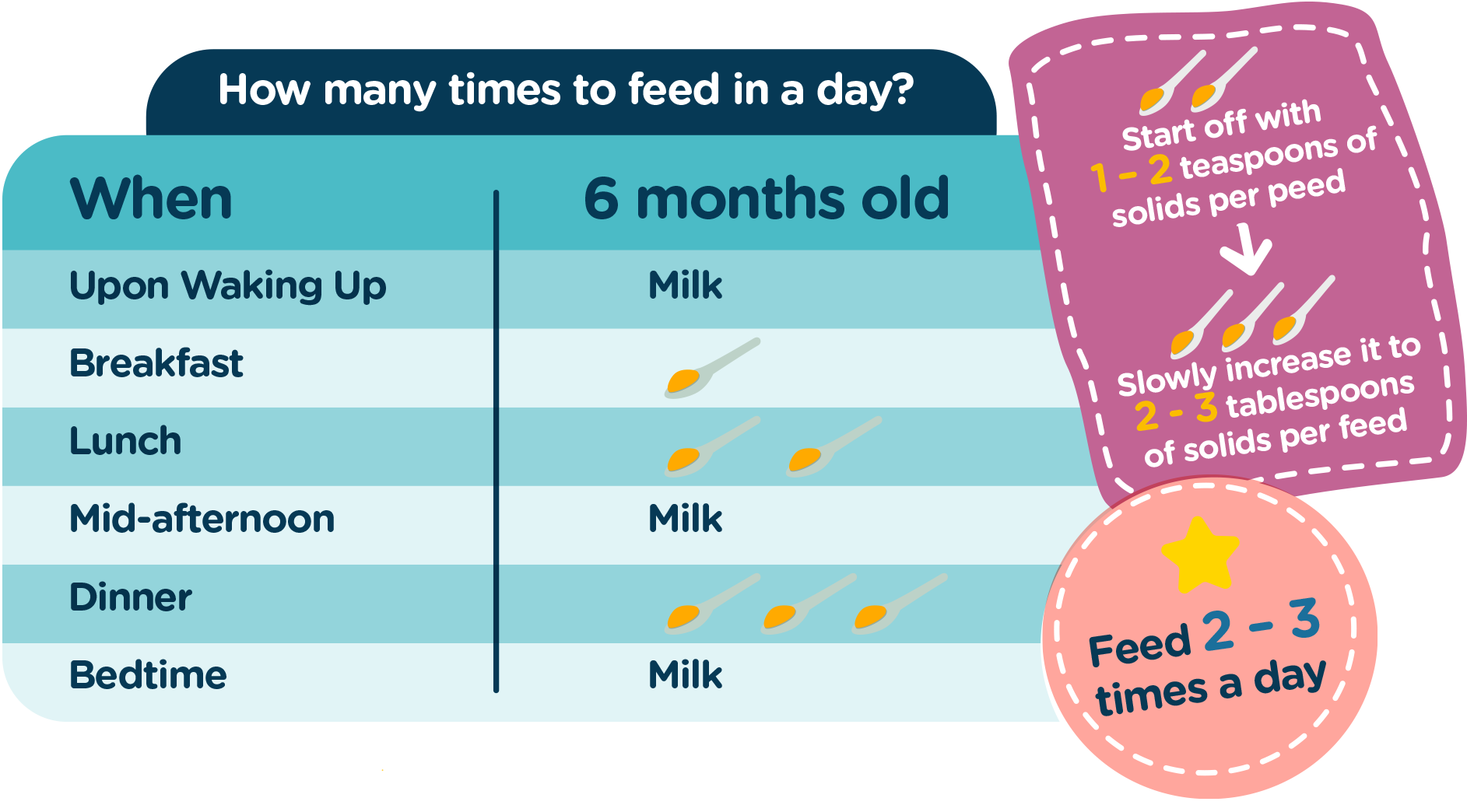

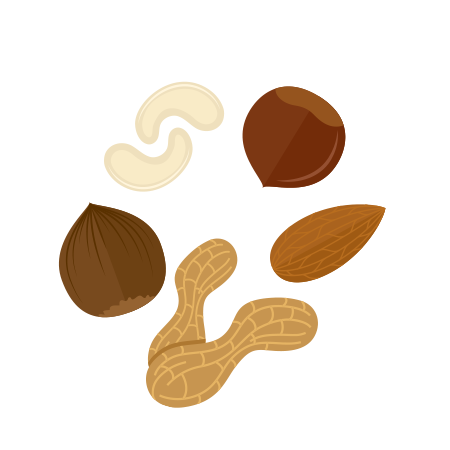

1
Whole Nuts / Seeds
Imposes a risk of choking
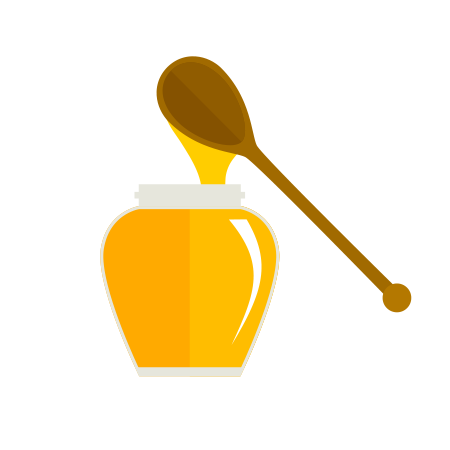

2
Honey
Avoid giving your baby honey before the age of 12 months, as honey contain a type of bacteria which can produce toxins in baby’s intestines and cause serious illness (infant botulism)
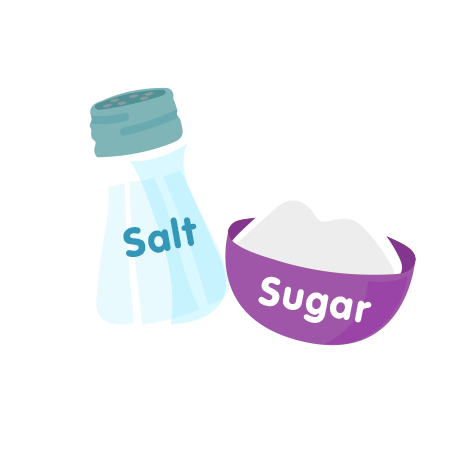

3
Salt / Sugar
As your baby’s kidneys are not fully developed, avoid adding any salt to food. Sugar on the other hand, may encourage a sweet tooth and lead to tooth decay.
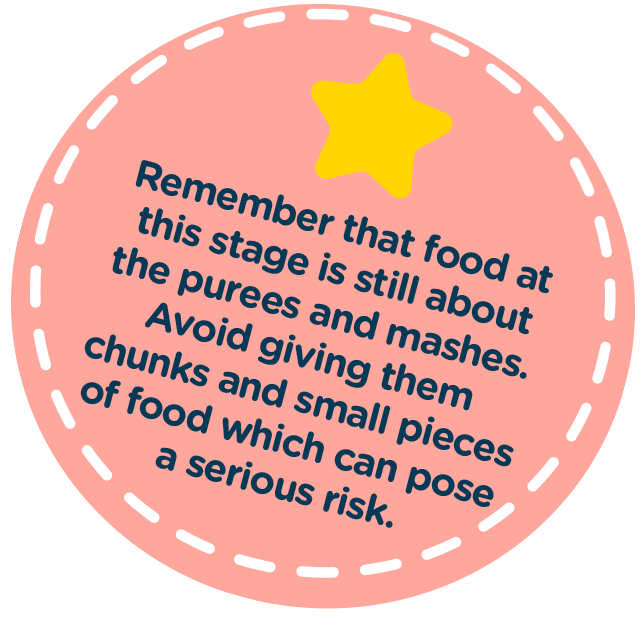



Watch for these cues to know if your baby is ready to eating bigger bits of food!
Physical Skills


Crawls with tummy off the ground
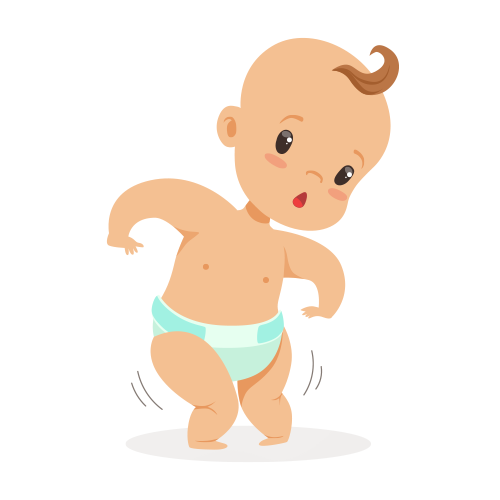

May pull herself up to a stand
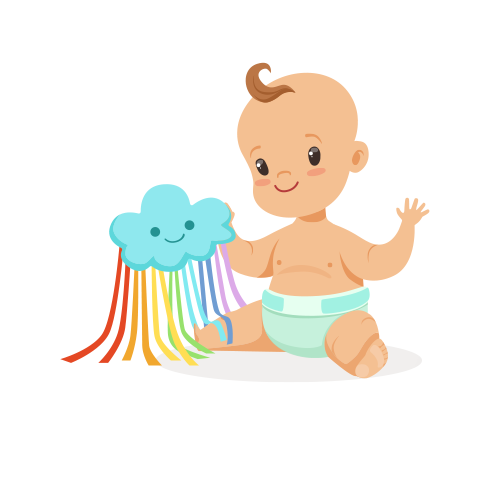

Gets her hands on everything in sight
Eating Skills
- Can begin to experience more texture, but not equipped to handle it separately within the mouth
- Moves food side to side with tongue to the jawline for mashing & chewing



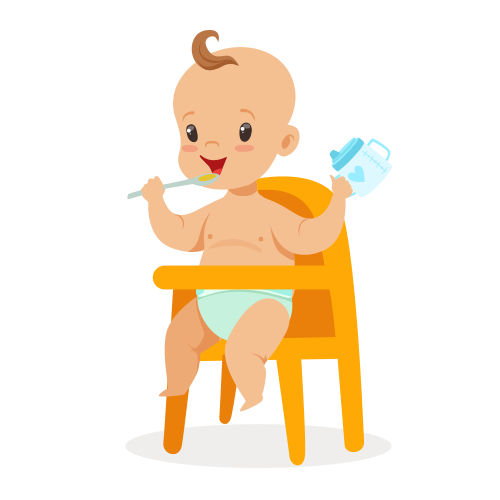

Can hold spoons and cups with lids, but not necessarily for self-feeding
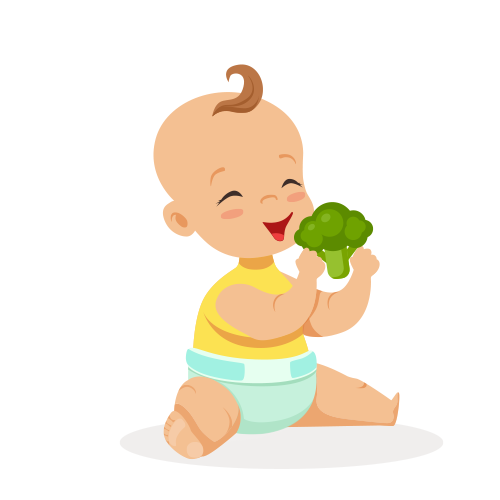

Begin to self-feed with fingers
At this stage, texture added to your baby’s food previously was well-tolerated and food has never been a more important part of your little one’s diet. As your baby’s oral skills and hand-eye coordination developed, they’re moving closer to being able to feed themselves, either with their hands or a spoon.
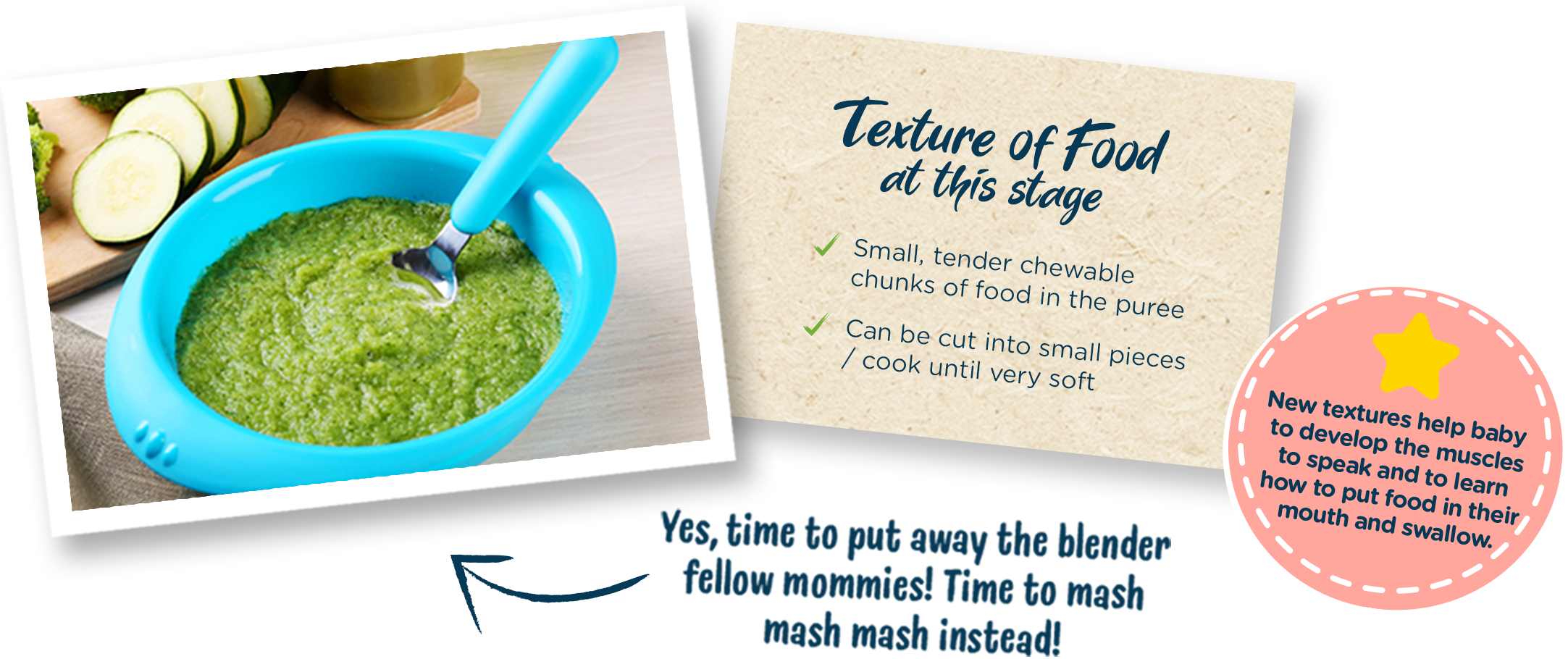

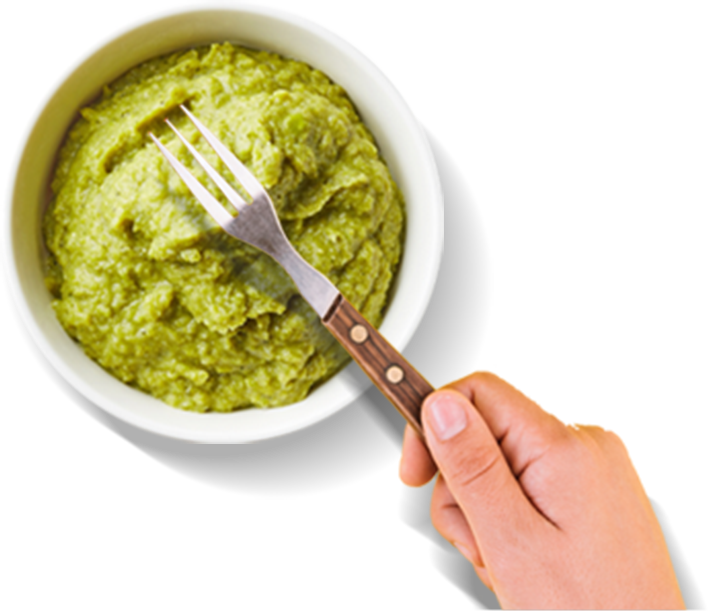

Mash food with a fork to create texture!
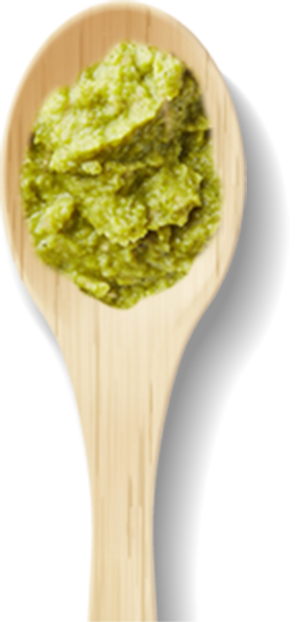

Offer various kind of texture for your baby to explore!
- Lumpy
- Minced
- Grated
- Diced
It can be a whole messy process when your baby is learning how to eat! Your baby sees you eating and wants to join the fun, but they can’t quite yet. At this time, your baby is learning how to mash their food, hold a spoon and tell different foods apart. Messy but exciting!
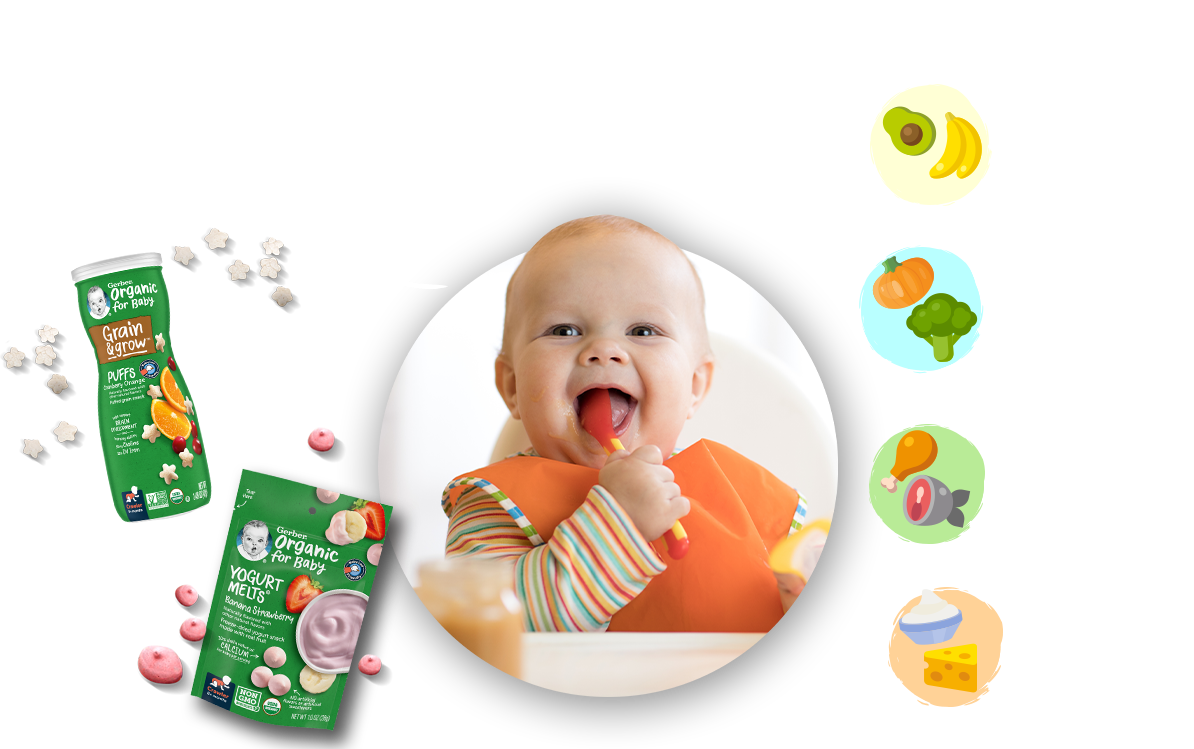

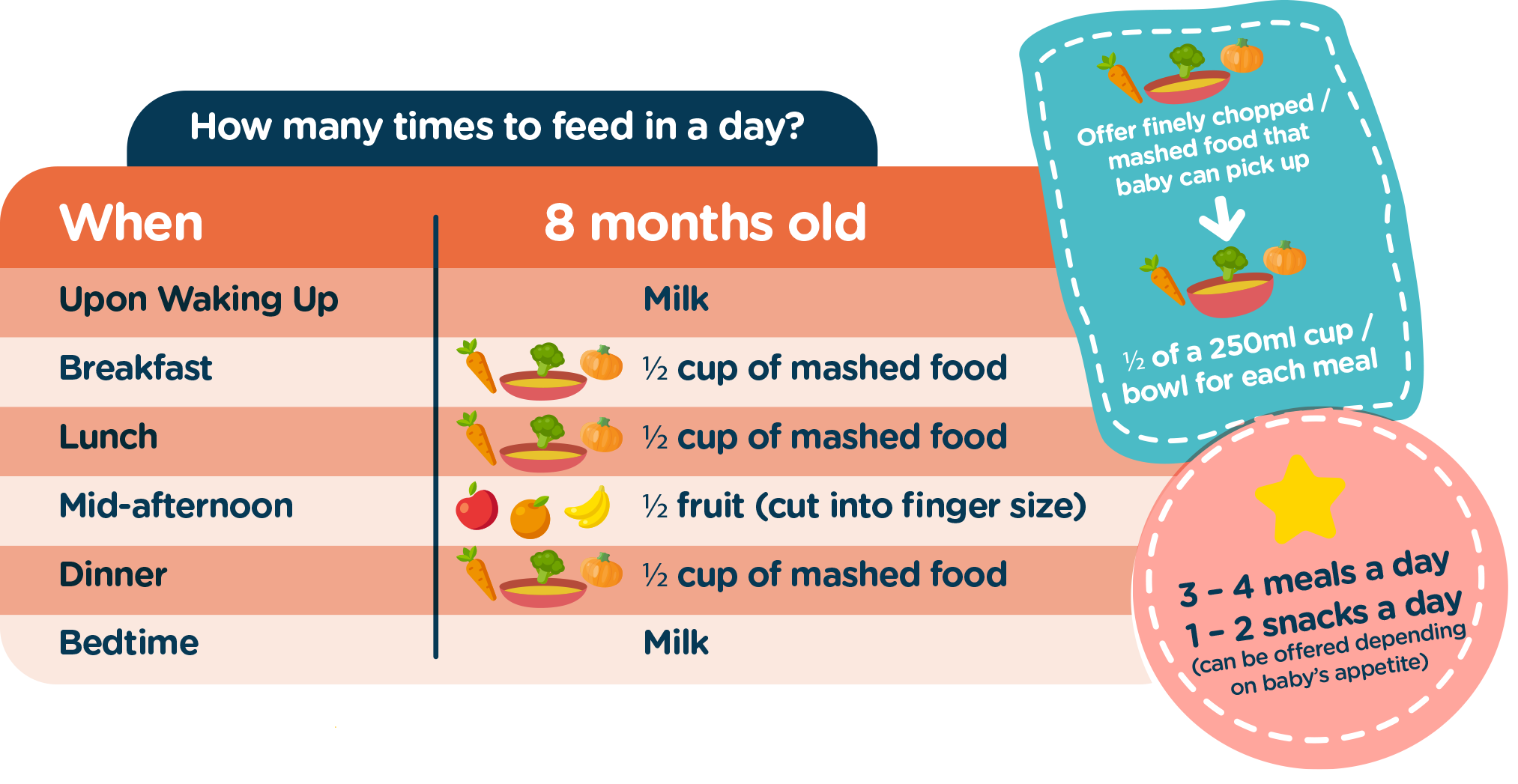



Watch for these cues to know if your baby is an independent eater now!
Physical Skills


Stands alone and begins to walk alone
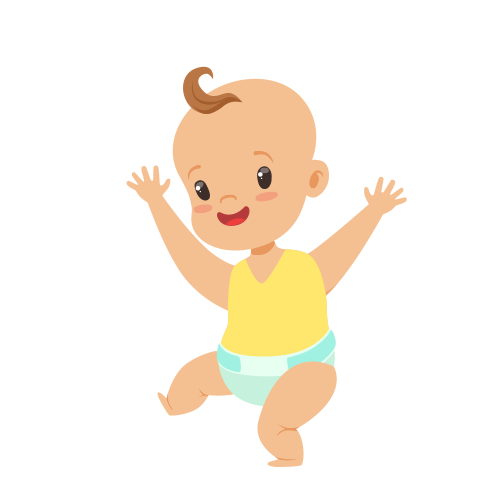

Walks with feet wide apart and toes pointed out
Eating Skills
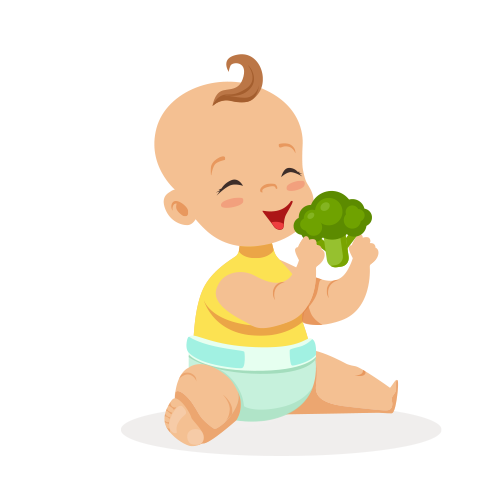

Can self-feed with fingers
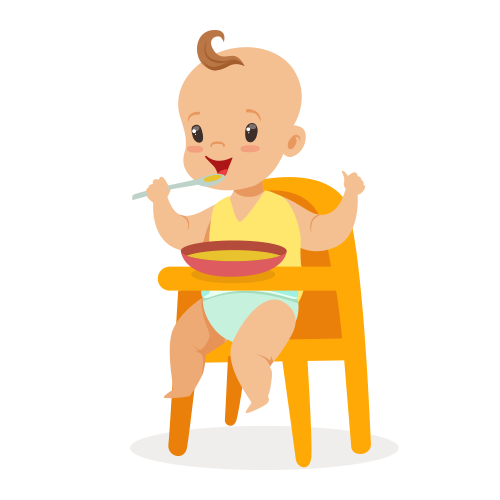

Begins exploring using utensils
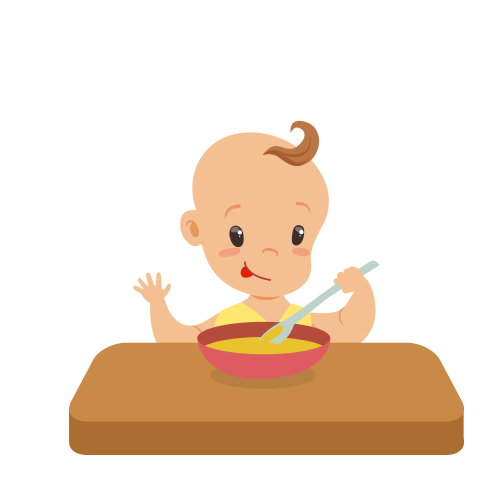

Begins to dip spoon rather than scoop
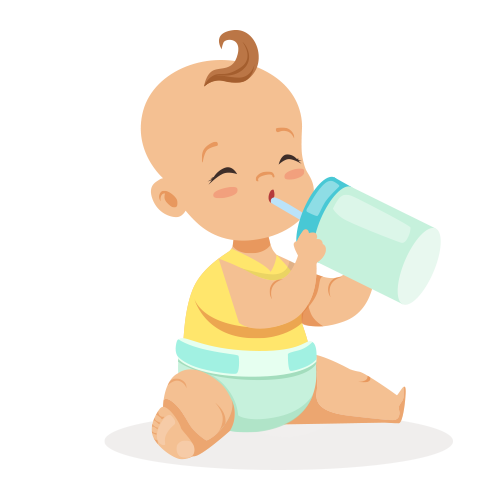

May start to drink through a straw
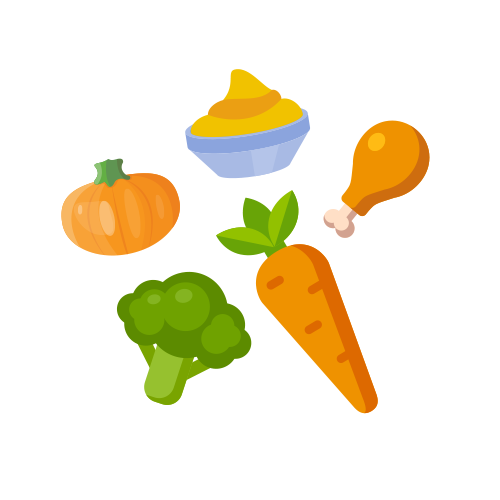

Able to bite through a variety of textures
At this stage, your mini me is becoming more independent, insisting on doing everything on their own, feeding themselves. Your toddler is now ready to eat almost anything, as long as it is chopped up. Your toddler’s digestive system is ready to accept a good variety of solids to meet his increasing nutrient and calorie needs.
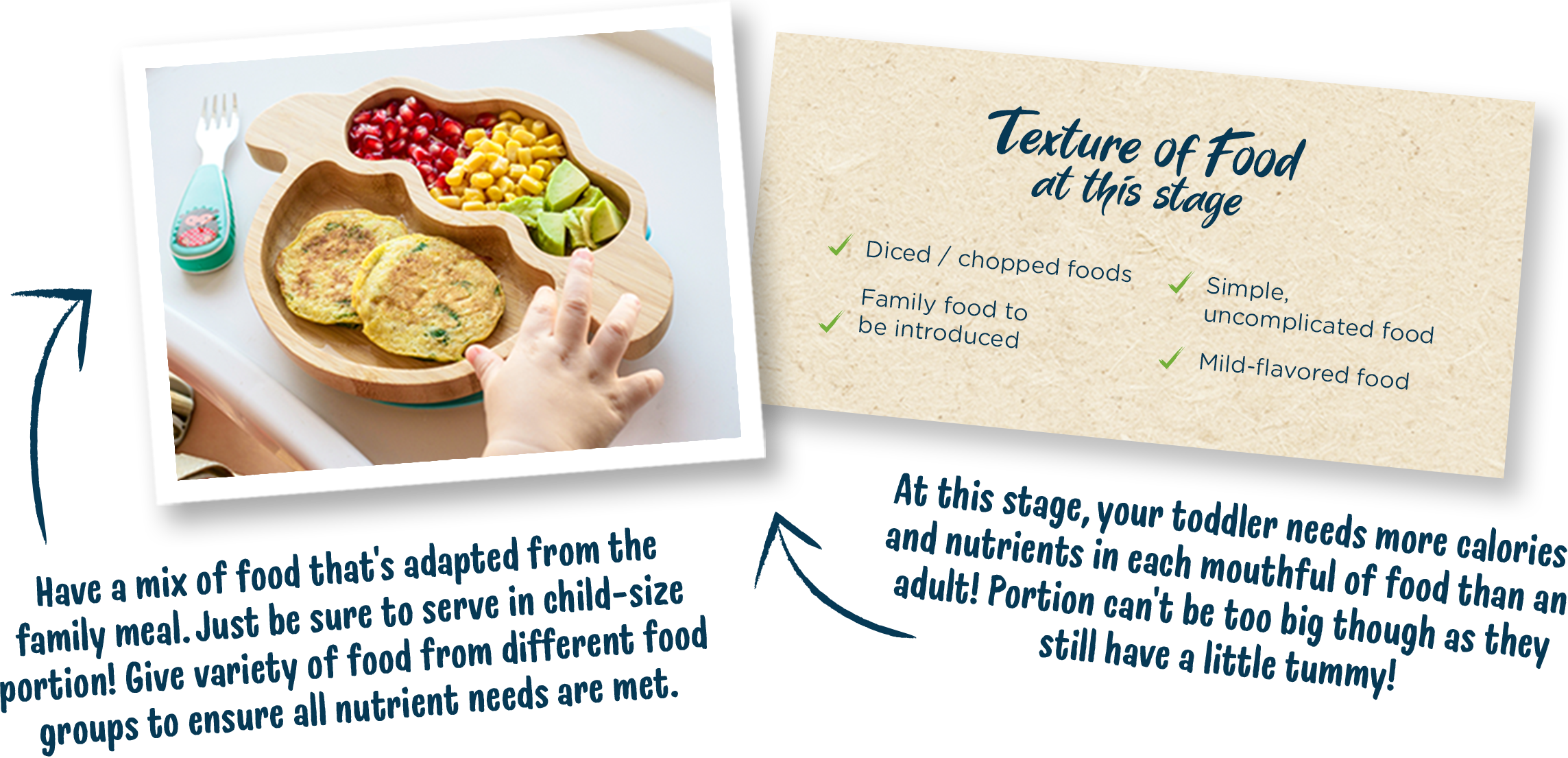

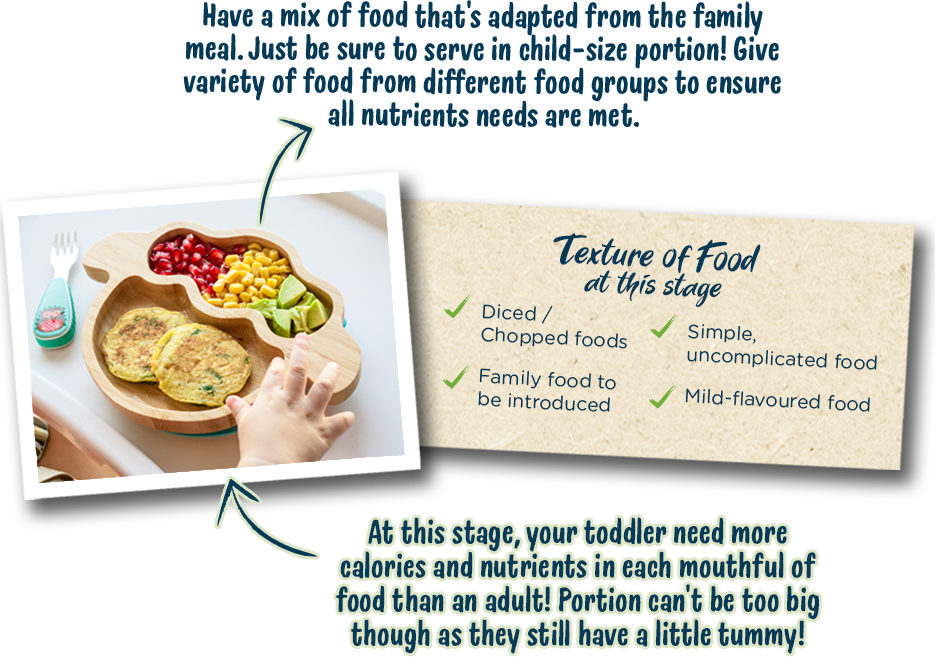

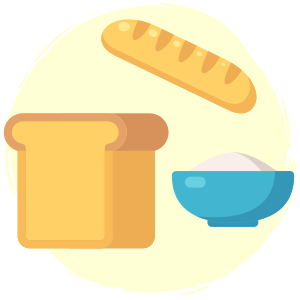

Cereal / Grains
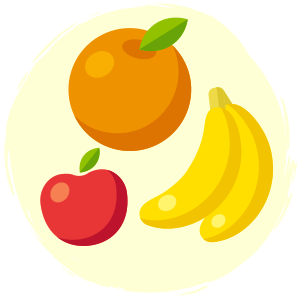

Fruits
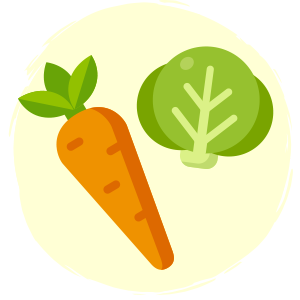

Vegetables
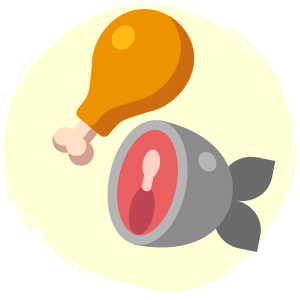

Meat / Fish
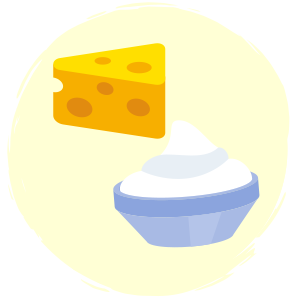

Diary Products
In general, your toddler at this stage should be having 3 – 4 meals a day. Depending on your child’s appetite, 1 – 2 snacks may be offered.
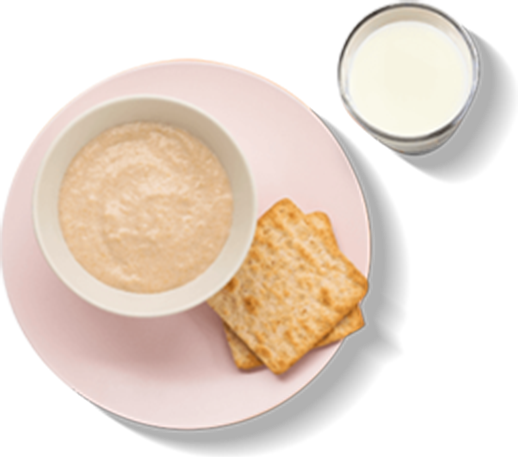

Breakfast
¾ small bowl of oat cereal or 1 -2 pcs of biscuits and 1 small cup of whole milk
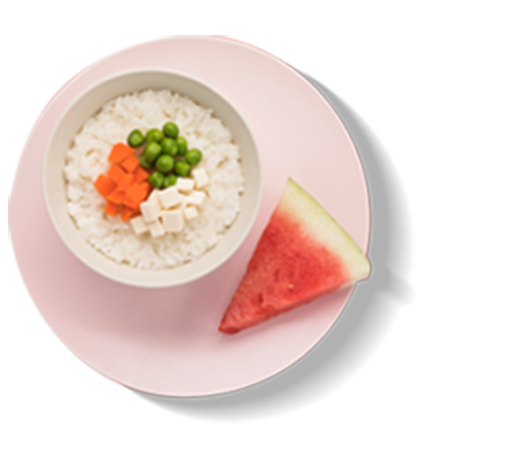

Lunch
½ or ¾ small bowl of rice, ½ palm size of protein, with 2 – 3 tbsp of veggies, ½ pcs of watermelon wedge
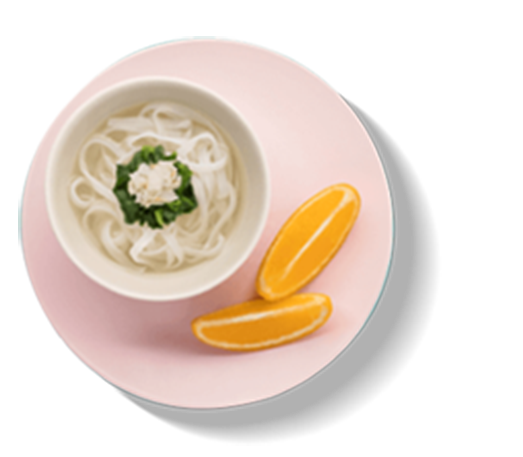

Dinner
½ or ¾ small bowl of noodles, ½ palm size of protein, with 2 – 3 tbsp of veggies, ½ or ¼ pcs of orange
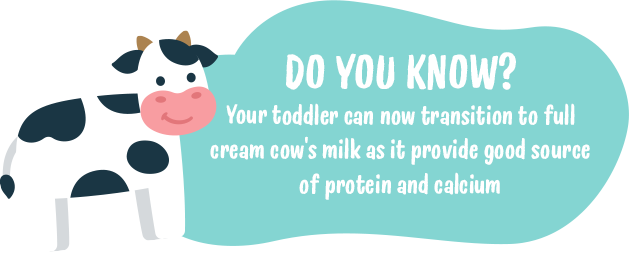

Snacks may be required between meals. Example of snacks:1 serving of Gerber® Organic Lil' Crunchies that provides 2g of protein!
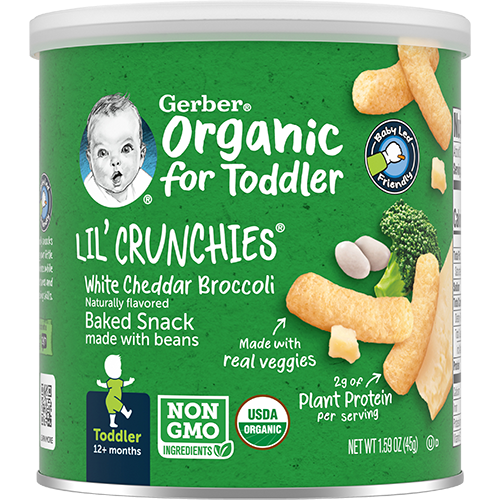

We got you mommy! Worry not as it is quite normal for your toddler to be refusing food occasionally. Most toddlers become less open to trying new foods / reject foods they liked before. This is completely normal!


Your toddler rejects unfamiliar foods for the first time they are offered. Mommy should continue to offer small portion of these food without comments for toddler to become familiar and accept them.


Don’t force your toddler to eat! When refused to eat, simply remove food and plate without comment. Try not to worry as for most toddlers, this will be a passing phase.
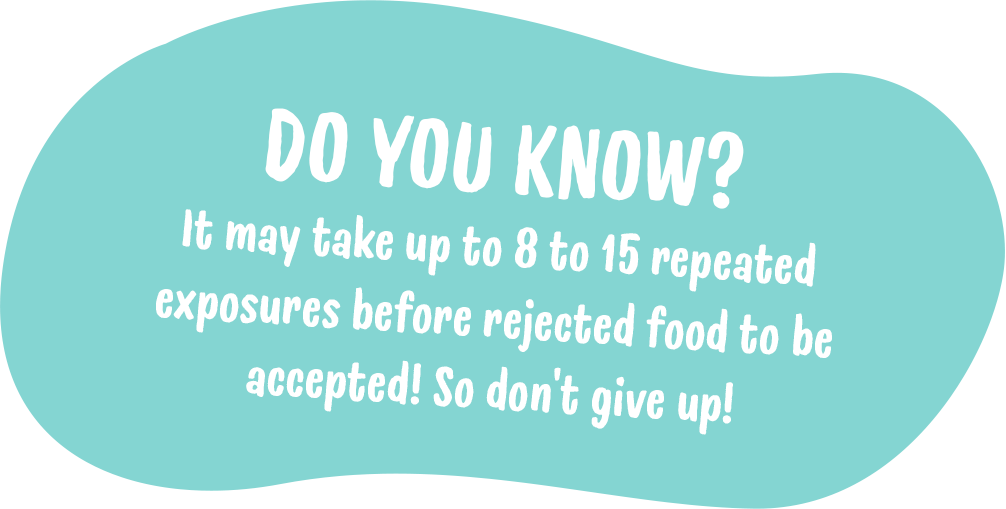

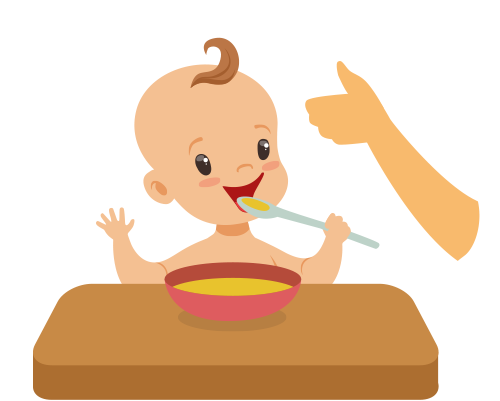

Praise your toddler when they try everything and allow them to stop when they have had enough.
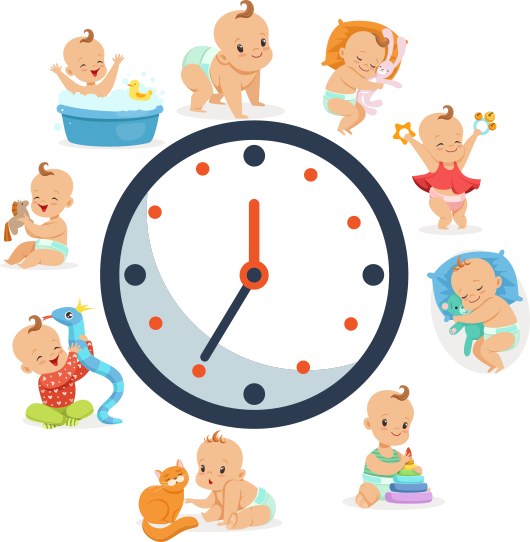

Keep your toddler with a regular mealtime routine! Avoid frequent snacking between meals or feeding time which is too close to mealtime as these can reduce their appetite for main meals.
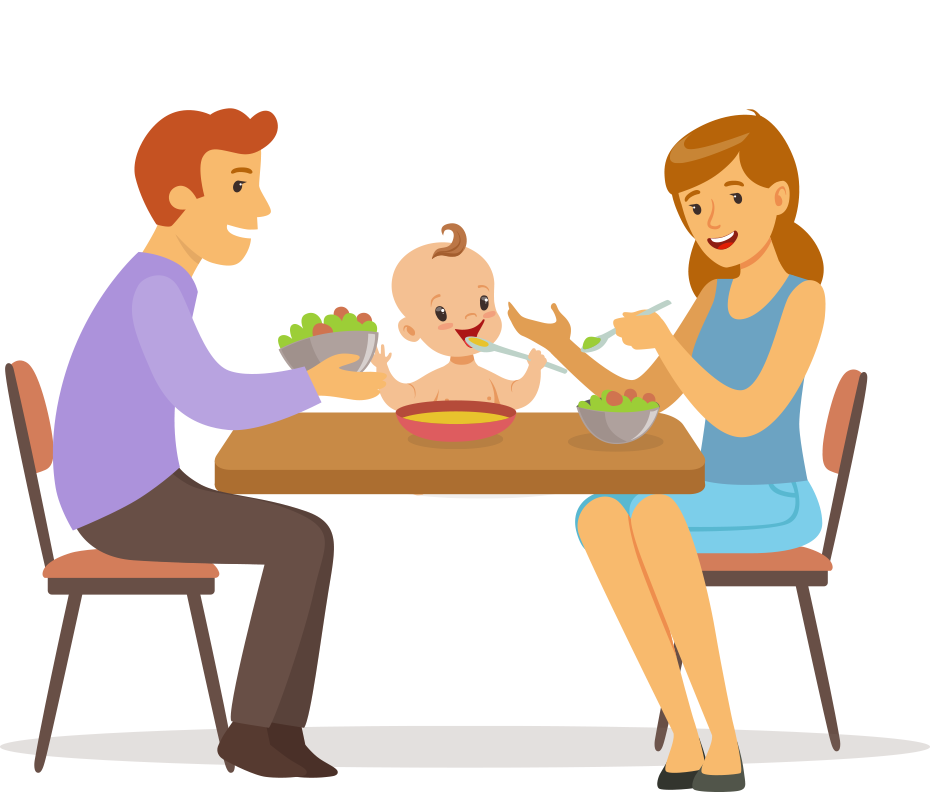

Eat together with your toddler at the family table during mealtimes! This gives them opportunity to enjoy meals with family and encourages them to eat as they see others doing the same. After all toddles are great imitators at this stage!

